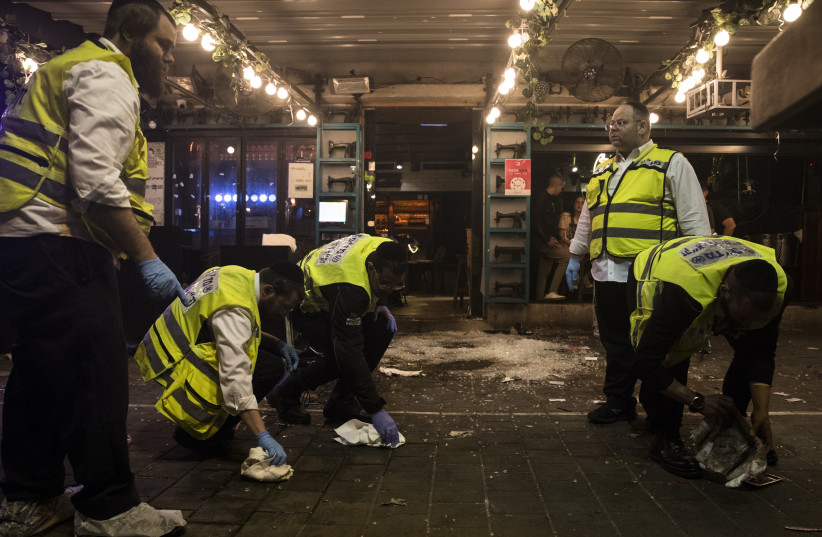The Palestinian Authority, Hamas and Palestinian Islamic Jihad on Friday sought to establish a direct link between the recent wave of terrorism in Israel and the ongoing tensions in Jerusalem, especially regarding visits by Jews to al-Aqsa Mosque compound (the Temple Mount).
Their main goal is to pressure Israel to stop Jewish tours of the Temple Mount and end security measures taken during Ramadan in and around the Old City of Jerusalem.
Another goal is to depict the attacks as a natural and inevitable response to Israeli “crimes” and “provocations” against the Palestinians.
While many Palestinians were celebrating Thursday night’s terror attack in Tel Aviv, PA President Mahmoud Abbas’s office released a statement headlined: “The President: The killing of Palestinian and Israeli civilians will lead to further deterioration.”
Although the headline did not mention the terror attack, the statement’s first sentence read: “The President of the State of Palestine Mahmoud Abbas expressed his condemnation of the killing of Israeli civilians on Thursday evening in a shooting operation in the center of Tel Aviv.”
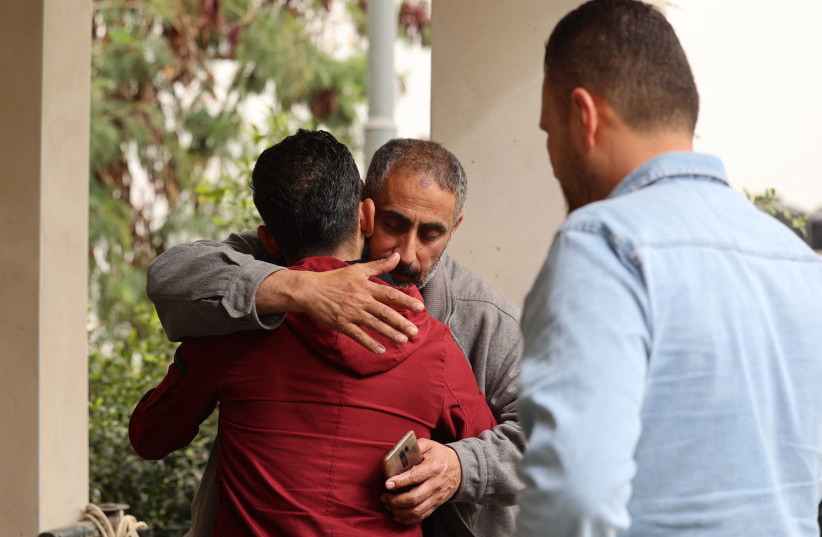
The statement reflects the delicate situation in which Abbas has found himself in the aftermath of the recent wave of terrorism in Israel. Each time he condemns such attacks, Abbas is accused by many Palestinians and Arabs of being a traitor and a puppet in the hands of Israel and the US.
Palestinians say that the 86-year-old PA leader is caught between a rock and a hard place.
This was Abbas’s second condemnation of its kind in the past few weeks. The previous condemnation – of the Bnei Brak attack – was reportedly issued under pressure from Israeli and US officials.
Abbas’s statement on Friday morning sought to avoid a backlash from Palestinians by also mentioning the “killing of Palestinian civilians.”
But it also sought to establish a direct link between the terror attacks and both visits by Jews to the Temple Mount and Israeli security measures in Jerusalem during Ramadan.
In his statement, Abbas warned against “the dangers of the continuation of the recurring incursions into the al-Aqsa Mosque and the provocative actions of extremist settler groups.”
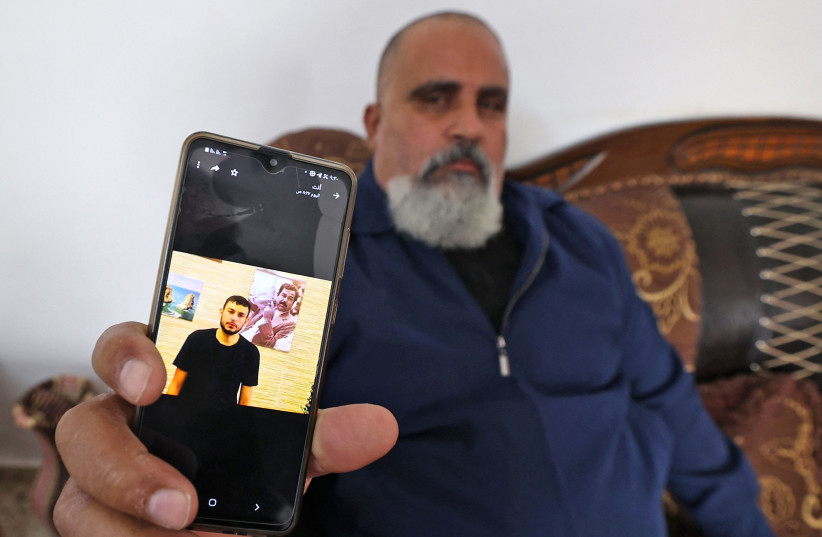
Abbas also warned against exploiting the latest terror attack to “perpetrate assaults on our Palestinian people by settlers and others.”
THE PA leader’s latest condemnation aimed to placate some officials in the Israeli government and the US administration. Similarly, it also sought to mollify the Palestinian public and Abbas’s rivals, especially Hamas and Palestinian Islamic Jihad, by invoking the sensitive and explosive issue of al-Aqsa Mosque.
Obviously, the “Palestinian street” and the terrorist groups rejected Abbas’s condemnation of the last two attacks in Israel. Several Palestinians took to social media to harshly criticize him for condemning the attack.
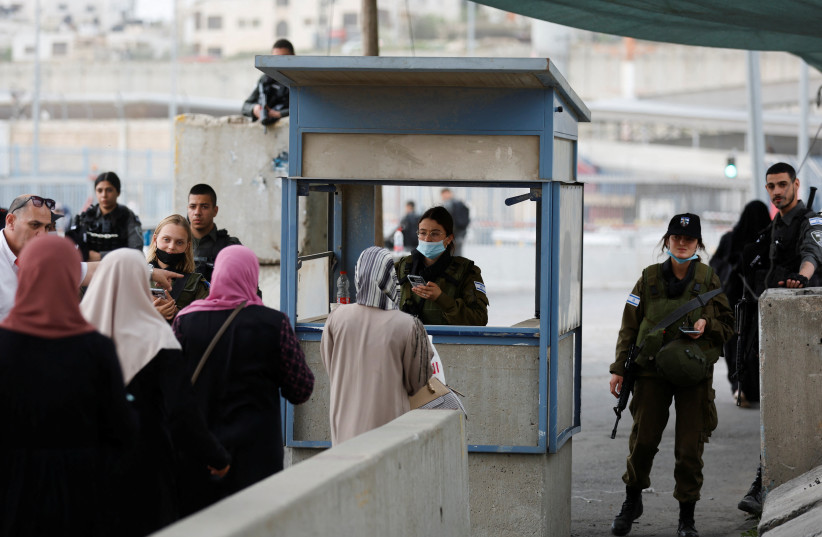
Palestinians in several parts of the West Bank and Gaza Strip also took to the streets to celebrate the Tel Aviv attack by launching fireworks and handing out sweets.
On Friday morning, dozens of Palestinians gathered outside the home of the terrorist, Ra’ad Hazem, in the Jenin refugee camp, chanting slogans in support of the attack, including: “Blow up the head of the Zionist” and “We prefer death to humiliation.”
Hazem’s father Fathi, a former senior PA security officer, hinted that his son carried out the attack because of Jewish “incursions” into al-Aqsa Mosque. He said that the Palestinians will continue to fight until “victory and the liberation” of their land and holy sites, particularly al-Aqsa.
Although the terrorist was not known to be affiliated with any faction, sources in Jenin pointed out that several members of his family were members of Fatah, the ruling faction headed by Abbas.
His maternal uncle, Mohammed al-Sa’di, was a member of the Fatah-affiliated Black Panther terrorist group that operated in the northern West Bank during the First Intifada. The group’s members were responsible for a series of attacks on IDF troops, settlers and Palestinians suspected of collaboration with Israel.
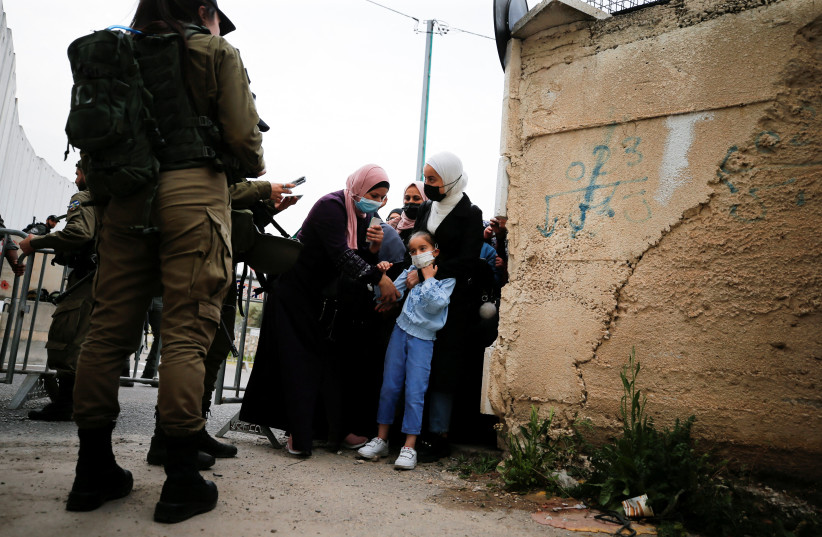
Sa’di was killed during an armed clash with IDF soldiers.
Hamas leader Ismail Haniyeh, who is based in Qatar, phoned the terrorist’s father and “congratulated” him on the “heroic operation.”
Like Abbas, Haniyeh linked the attack to the recent tensions in Jerusalem. The Hamas leader praised the terrorist for carrying out the attack “in support of Jerusalem, al-Aqsa Mosque and the martyrs of Palestine.”
Hamas said in a separate statement in the Gaza Strip that the Tel Aviv attack “affirms that Jerusalem and al-Aqsa Mosque are a redline.” The group vowed to “defend the mosque against the desecration of the settlers.”
Palestinian Islamic Jihad also praised the attack as a “natural response to the Zionist aggression, crimes and terrorism.” The group also connected the wave of terrorism to the tensions in Jerusalem, as well as the killing of three of its gunmen in a shootout with Israeli security forces near Jenin last week.
